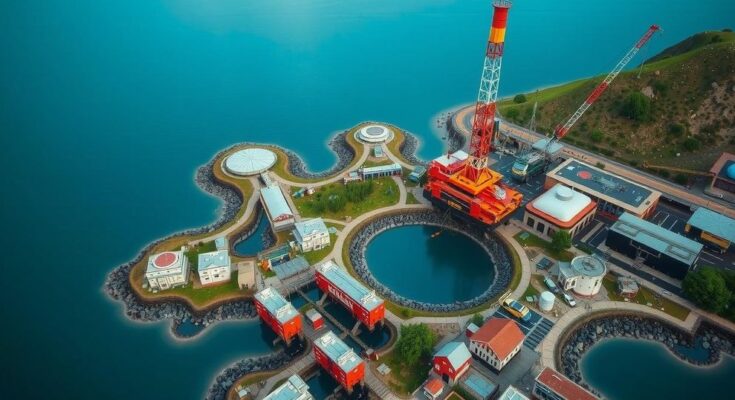During COP29, Azerbaijani President Aliyev referred to the country’s oil and gas as a “gift from God” while criticizing Western hypocrisy in their environmental stance despite buying Azeri energy. He defended the natural resource utilization, asserting that countries should not be judged by their energy outputs. The summit reflected ongoing tensions between energy needs and climate change efforts, as UN officials called for urgent action against fossil fuel dependence.
At the inauguration of the COP29 climate summit in Baku, Azerbaijan, President Ilham Aliyev declared the country’s oil and gas reserves to be a “gift from God.” He defended Azerbaijan’s reliance on fossil fuels while criticizing Western nations for demonizing his country despite their ongoing purchases of its energy resources. Aliyev’s remarks countered claims that Azerbaijan has been unfairly targeted for its fossil fuel dependence, accusing Western media and NGOs of perpetuating a misleading narrative against Azerbaijan. President Aliyev emphasized his nation’s right to utilize its natural resources, claiming that the international community should not judge countries based solely on their energy output. He pointed out that approximately 90% of Azerbaijan’s exports consist of oil and gas, underscoring the economic importance of these resources to the nation. Furthermore, he remarked on the hypocrisy of critics in the West, who, while criticizing Azerbaijan for its energy policies, simultaneously increase their imports of Azeri gas to decrease their dependence on Russia. Aliyev’s comments came as the UN Secretary-General Antonio Guterres warned against deeper reliance on fossil fuels amid climate concerns. Guterres called for all nations, particularly G20 countries, to take decisive action against climate change as projections indicate worsening climatic conditions. Aliyev’s insistence on the use of fossil fuels as beneficial and necessary for market demands presents a contentious viewpoint at a summit focused on climate action and sustainable practices. His address illuminated the tensions between fossil fuel-producing nations and global efforts to combat climate change.
The COP29 summit, hosted in Azerbaijan, brings together global leaders to discuss climate change and sustainability measures. Despite being under scrutiny for its heavy reliance on fossil fuels, Azerbaijan, led by President Aliyev, argues that its resources should be seen as an asset rather than a liability. The controversy surrounding the summit lies in the ongoing need for energy and the geopolitical complexities that shape energy dependence, particularly as Europe looks to diversify its energy sources amid conflicts involving major suppliers. This setting provides a platform for conflicted narratives regarding energy production and environmental responsibility.
Azerbaijan’s hosting of the COP29 summit has brought to the forefront significant debates about energy dependency and environmental responsibility. President Aliyev’s declarations of oil and gas as a “gift from God” challenge the prevailing narratives of climate advocates calling for reduced fossil fuel reliance. As global leaders navigate the intricate relationship between energy needs and climate change, these discussions will shape future policies and international cooperation on environmental issues. The juxtaposition of energy demands against the backdrop of climate urgency illustrates the complexity of achieving sustainable development.
Original Source: www.aljazeera.com




